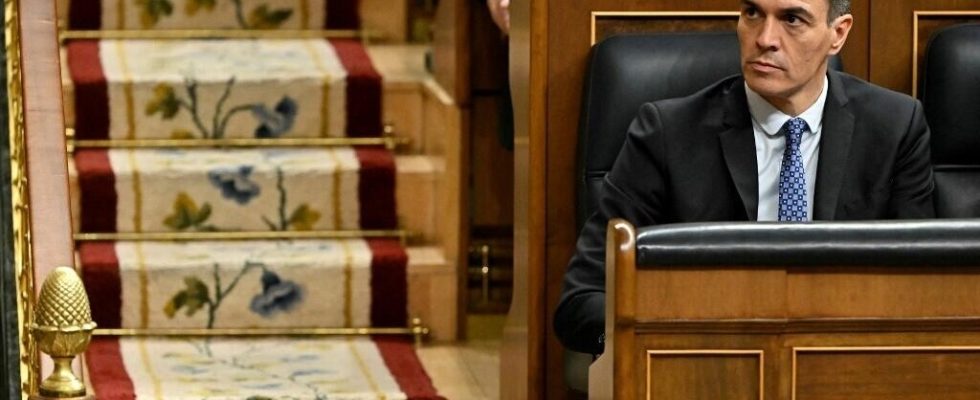Spanish Prime Minister Pedro Sánchez suffered a scathing setback in Parliament on Tuesday with the rejection of the Catalan separatists’ amnesty bill, a new illustration of the extreme fragility of his government, renewed only two and a half months ago.
2 mins
Paradoxically, it was the party of the independentist Carles Puigdemont, Junts per Catalunya, which voted against this highly controversial bill, considering that it did not guarantee the application of this amnesty to its leader, the main figure of the attempted secession of Catalonia in 2017.
This rejection at first reading does not mean the abandonment of the text, which will have to return to the parliamentary committee where it can be modified. But it illustrates the permanent pressure to which Junts subjects the executive, deprived of a majority without the support of its seven deputies.
Faced with a result that seemed unexpected until Monday, the Minister of Justice, Félix Bolaños, judged “incomprehensible that Junts voted against a law that she negotiated ”, and asked the Catalan party to “ reconsider your position “.
Unpredictable ally, Junts demanded on Tuesday morning the vote by Mr. Sánchez’s socialists on amendments intended to counter the judicial offensive by two magistrates seeking to prevent the application of this measure to Carles Puigdemont. The socialists having refused, Junts voted against the bill which received only 171 votes in favor while the required majority was 176 votes out of 350.
Amnesty must be total (…) and leave no one on the side of the road, no one “, warned the head of Junts deputies, Miriam Nogueras, before the vote. Junts specifically demanded that the text guarantee the application of this amnesty to people accused of “terrorism”, without possible exception, or of “treason”, which is not the case in the current project, Mr. Puigdemont being threatened with an indictment for such offenses by two magistrates.
This amnesty bill was a condition demanded by the Catalan separatists in exchange for their essential support for the mid-November reappointment of Mr. Sánchez for a new mandate.
If Parliament ultimately adopts it, this text should make it possible to stop legal proceedings against hundreds of separatist activists and leaders for their involvement in the secession attempt, including Mr. Puigdemont, who fled to Belgium there is over six years old in order to escape these prosecutions.
The Sanchez government has had a long journey to reach this bill, which enormously weakens the figure and leadership of Sanchez and the Socialist Party. So, he will have paid a heavy price for achieving nothing.
Maria Elisa Alonso, political scientist, lecturer at the University of Lorraine
(with AFP)
